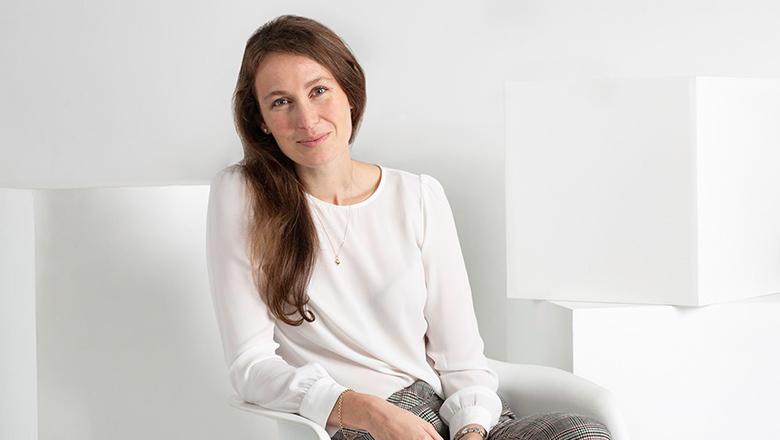Whether you’ve never set foot in a church, mosque or temple, or you attend religious services regularly, the Religious Studies major provides fascinating course material and excellent opportunities.
If you already have a deep interest in religions and how they impact society, the benefits of studying religion at university are obvious. But even if it’s not a subject you’ve considered before, Religious Studies can provide you with a rich knowledge base and flexible skill set. Graduates from this major are equipped to enter all sorts of jobs and industries with an empathetic and well-informed perspective.
We spoke with Dr Adam Bowles, convenor of UQ’s Religious Studies major, to find out what this line of study can provide students and where it can take them after graduation.
So, why study religion as part of your Bachelor of Arts? Let’s find out.
Is Religious Studies a good major?
Adam believes this major can be both enjoyable and enriching for any student. He considers understanding how religions impact individuals and communities to be incredibly valuable for modern professionals.
“Religions are complex and historically rich – they are exciting to learn about,” he says.
Adam also sees religion as an insightful lens for viewing history, observing the current day, and looking towards tomorrow.
“Understanding religion is crucial to understand our past and present,” he says.
“They play, and have played, pivotal roles in social, political and economic issues, and they are important to how many people make meaning of their lives.”
To be a positive contributor to any workplace or community, you need to know how to treat others with respect. A degree in religious studies provides a framework for understanding the spiritual needs and values of those around you. This makes it easier to relate to and interact appropriately with people from all walks of life.
Skills you get when you study religion
This major has a multidisciplinary approach covering many faiths and spiritualities, including both Western and Eastern philosophies. The courses will guide you to reflect and understand many traditions, values and questions. This means you’ll graduate with an excellent grasp and appreciation of how religions of the world have shaped and continue to shape societies.
In additional to expanding your worldview, this religious studies major will also equip you with a range of valuable and transferrable skills. Graduates who complete Religious Studies are adept at:
- considering and understanding multiple points of view
- conducting insightful research
- critical thinking and problem solving
- evaluating the quality of information
- synthesising and making connections across complex ideas
- listening and communicating (including written communication).
These are all universally applicable skills that can serve you well in any profession you pursue.
Remember, you won’t just study religions in this major. You’ll also learn about the relationships between religions and politics, history, social sciences, philosophies, literature and psychology.
Why is it important to study religion?
Studying other religions – and studying religion in general – is important because it helps us understand other cultures, develop ethical approaches to situations, and treat other people with empathy and mutual respect. The study of religions empowers us to:
- understand and appreciate different societies and civilisations across time and space
- gain insights into other cultural worldviews and expressions of spirituality, which fosters greater understanding and tolerance
- consider a religious context when studying historical events, movements and social structures
- develop and apply moral frameworks for ethical reflections around concepts like justice and right vs wrong
- build bridges between communities via interfaith dialogue and cooperation
- understand the religious factors in play when responding to global issues and situations
- guide our own spiritual journeys to develop a deeper self-understanding.
The study of religions is a multidisciplinary field that intersects with other academic realms such as anthropology, philosophy, and sociology. By studying religions, we can develop a more thorough understanding of humanity and its history, enabling us to build a better society for future generations.
Religious Studies careers
What are the possible jobs for religion majors? Well, the sky’s the limit, based on where our alumni are now.
“Religious Studies Bachelor of Arts graduates are employed in a large variety of roles,” says Adam.
Depending on your other major (and your other program for dual degrees), the Religious Studies major is the perfect complement to lead you to a career in:
- journalism
- education
- medicine and health care
- social work
- foreign affairs
- pastoral care
- NGOs
- public service
- law
- overseas aid
- academia.
You’ve probably noticed a lot of the fields above are international in nature. This is because studying religion uniquely equips you to compassionately deal with people from different faiths – including faiths you don’t encounter so frequently in Australia.
Similarly, if you’re in an industry that involves people from all sections of the population (like public service, education or medicine), a knowledge of many religions can make it easier to empathise and engage meaningfully with everyone you meet.
Alumni spotlight: Julia Clyne
- Dow Jones Vice President, Head of B2C, Asia-Pacific
- Bachelor of Arts (Religious Studies, French)

Julia’s love of ideas, language and literature helped plot her unusual career path. Although she really enjoyed her studies at school, she wasn’t sure what she wanted to do.
"Someone in my family told me that if I wasn’t sure what to do, I should study to develop my understanding of the world and study what I loved," she says.
Julia took this advice to heart, choosing to pursue a Bachelor of Arts majoring in French and Religious Studies. As a BA graduate, Julia says her education gave her the skills to approach and address complex issues in any industry.
"The most powerful thing I learnt at university was the ability to think critically," she says.
"We cannot approach the world from one perspective – the more you learn, the greater your ability to empathise and generate solutions that bridge many divides."
Before joining the world of international news advertising and sales, Julia’s career spanned a number of fields and countries.
"The study of people, religion and language helped me understand more about who people are and what motivates, inspires and moves them."
Jobs for religion majors
As just a snapshot of the many opportunities you could pursue, some common jobs for religion majors include:
- studies in religion teacher
- religion and ethics teacher
- welfare case manager
- youth development officer
- justice worker
- university academic
- foreign affairs officer
- community development officer
- government policy officer.
Study religion at UQ
When you choose the Religious Studies major as part of your Bachelor of Arts, you’ll get to select from courses including:
- World Religions and Spiritualities
- Religion and Science
- The History of the Supernatural
- Religion, Society, and the Contemporary World
- A History of Hinduism in India and Beyond: ritual, yoga, freedom
- Buddhism: from India to the World
- Islam and Society
- The Bible: Narratives and Interpretations
- Religion, Peace and Violence
Learn more about UQ’s Religious Studies major Explore other options in the UQ Bachelor of Arts






